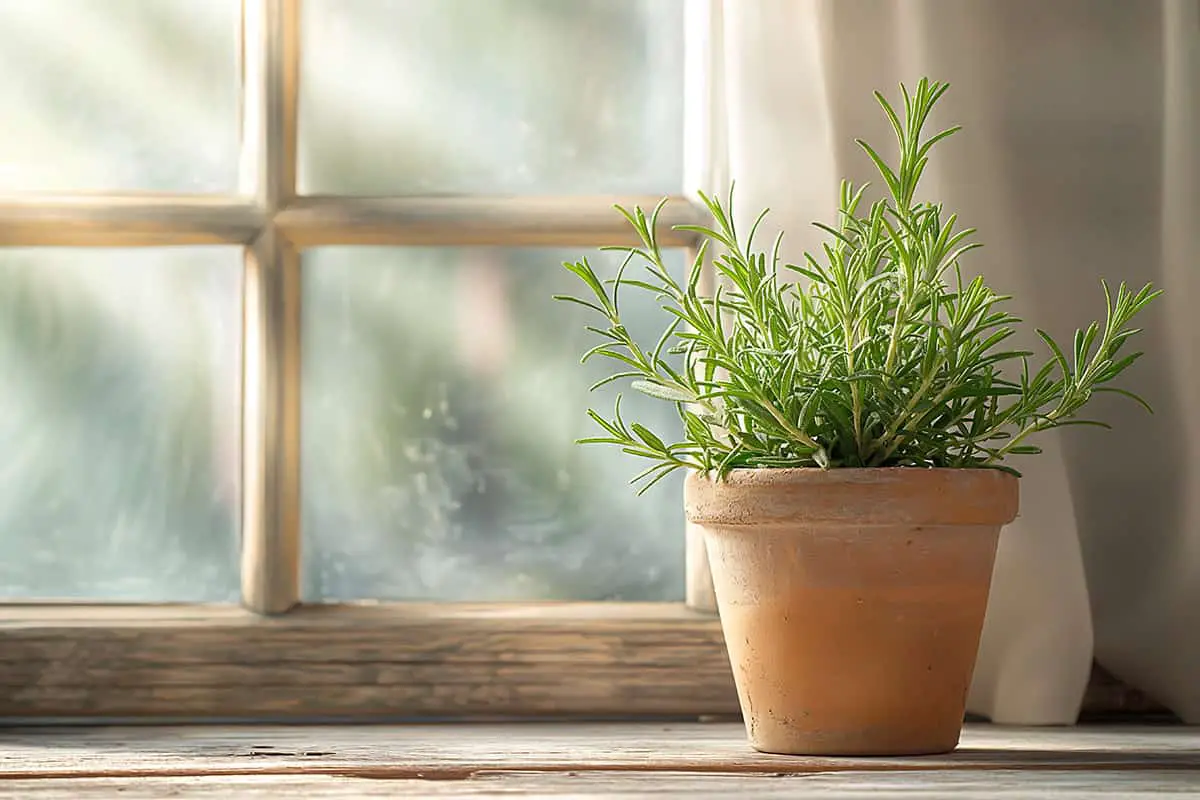You’re cooking dinner, and reach for a sprig of rosemary to add a burst of flavor to your roasted potatoes. This versatile herb isn’t just for cooking; it has a multitude of uses that can enhance your daily life. From boosting your hair health to freshening up your home, in this article, you’ll discover practical and creative ways to incorporate rosemary into your routine.
Table of Contents
- Ways to Use Rosemary
- Infusing Olive Oil with Rosemary
- Making Rosemary-Infused Vinegar
- Adding Rosemary to Roasted Vegetables
- Enhancing Grilled Meats with Rosemary
- Flavoring Soups and Stews with Rosemary
- Baking Rosemary Bread
- Creating Rosemary-Infused Desserts
- Making Rosemary-Infused Butter
- Brewing Rosemary Tea
- Crafting Rosemary-Infused Cocktails
- Using Rosemary in Marinades
- Making Rosemary-Infused Honey
- Creating Rosemary Essential Oil
- Using Rosemary in Aromatherapy
- Making Rosemary-Scented Candles
- Crafting Rosemary Potpourri
- Using Rosemary in Skincare Products
- Making a Rosemary Hair Rinse
- Creating Homemade Rosemary Cleaning Products
- Using Rosemary in Homemade Sachets
Ways to Use Rosemary
Rosemary is an incredibly versatile herb with culinary, medicinal, and aromatic uses. Whether you’re infusing oils, flavoring dishes, or creating homemade skincare products, rosemary can enhance many aspects of your daily life.
Infusing Olive Oil with Rosemary
Infused olive oil can enhance salads, bread, and various dishes. To make rosemary-infused olive oil, start by washing and drying fresh rosemary sprigs. Place the sprigs in a clean glass bottle. Heat olive oil until warm but not boiling. Pour the warm olive oil into the bottle, covering the rosemary. Seal the bottle tightly and let it sit for at least two weeks. Store in a cool, dark place.
Making Rosemary-Infused Vinegar
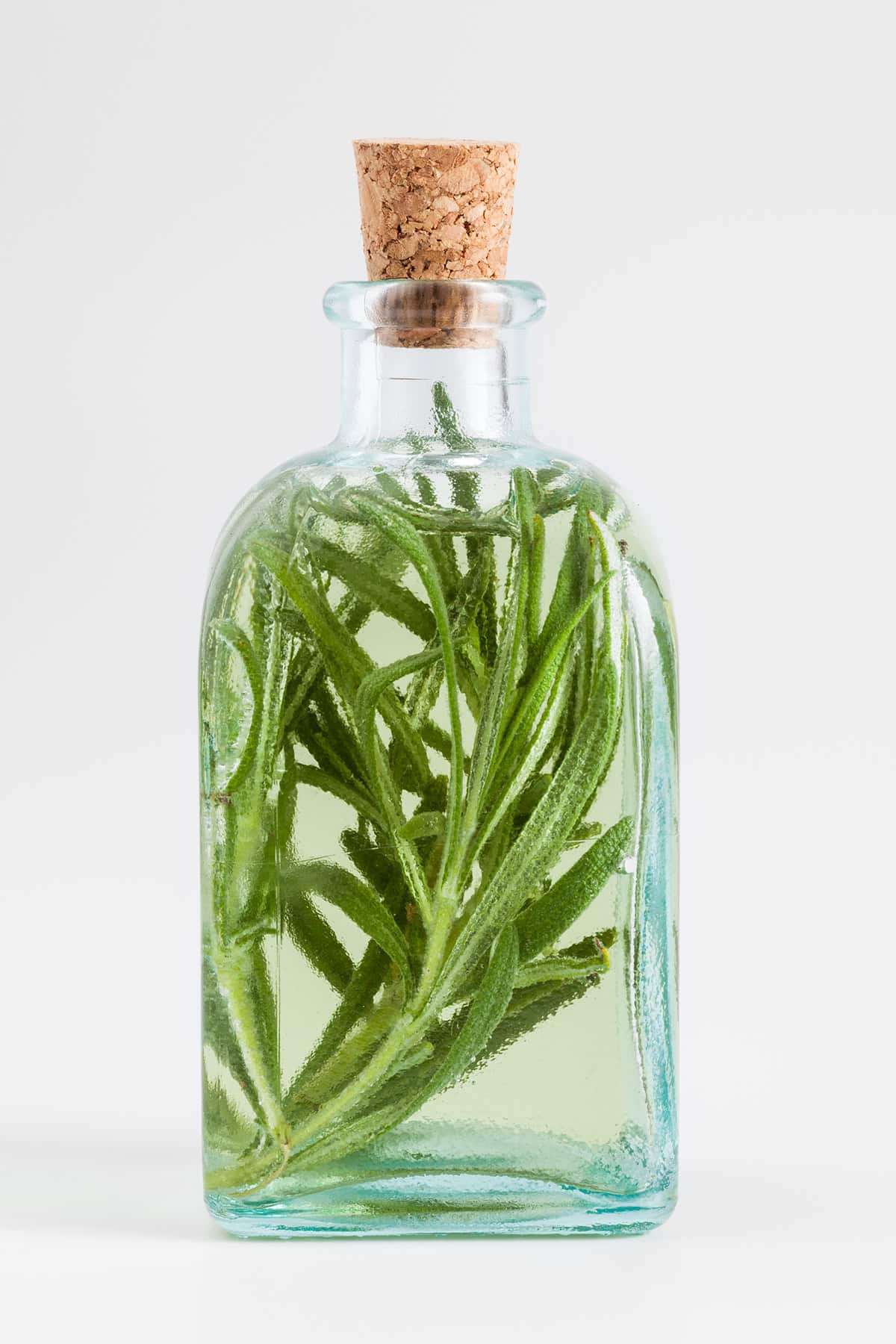
Rosemary-infused vinegar adds a unique flavor to dressings and marinades. Use a clean glass jar, add several sprigs of fresh rosemary, and fill with choice vinegar (white wine or apple cider vinegar works well). Seal the jar and let it sit for a couple of weeks. Strain the rosemary out before using the vinegar to ensure a smooth texture.
Adding Rosemary to Roasted Vegetables
Rosemary pairs well with roasted vegetables. Wash and chop your favorite vegetables, toss them with olive oil, salt, pepper, and minced fresh rosemary. Spread the vegetables on a baking sheet and roast them in a preheated oven at 400℉ until they are tender and slightly caramelized. This method brings out the earthy flavors of both the vegetables and the rosemary.
Enhancing Grilled Meats with Rosemary
Rub fresh or dried rosemary onto meats before grilling to infuse them with flavor. Create a marinade or dry rub with rosemary, garlic, olive oil, salt, and pepper. Let the meat sit in the marinade for at least an hour before grilling. This works particularly well with lamb, chicken, and beef.
Flavoring Soups and Stews with Rosemary

Rosemary’s bold flavor enhances soups and stews. Add a sprig or two of fresh rosemary to the pot during cooking. Remove the sprigs before serving, as the leaves can be tough. The herb pairs well with vegetables, beans, and meats, adding depth and complexity to the dish.
Baking Rosemary Bread
Incorporate rosemary into bread dough for a fragrant, savory loaf. Chop fresh rosemary finely and mix it into the dough before baking. You can also sprinkle rosemary on top of the bread before putting it in the oven. It pairs wonderfully with olive oil or a dash of sea salt.
Creating Rosemary-Infused Desserts
Rosemary can also be used in desserts. Infuse sugar or honey with fresh rosemary to add an herbal note to cookies, cakes, and custards. Combine cream with rosemary sprigs, heat until just simmering, and let it steep. Use this infused cream in recipes like panna cotta or ice cream.
Making Rosemary-Infused Butter
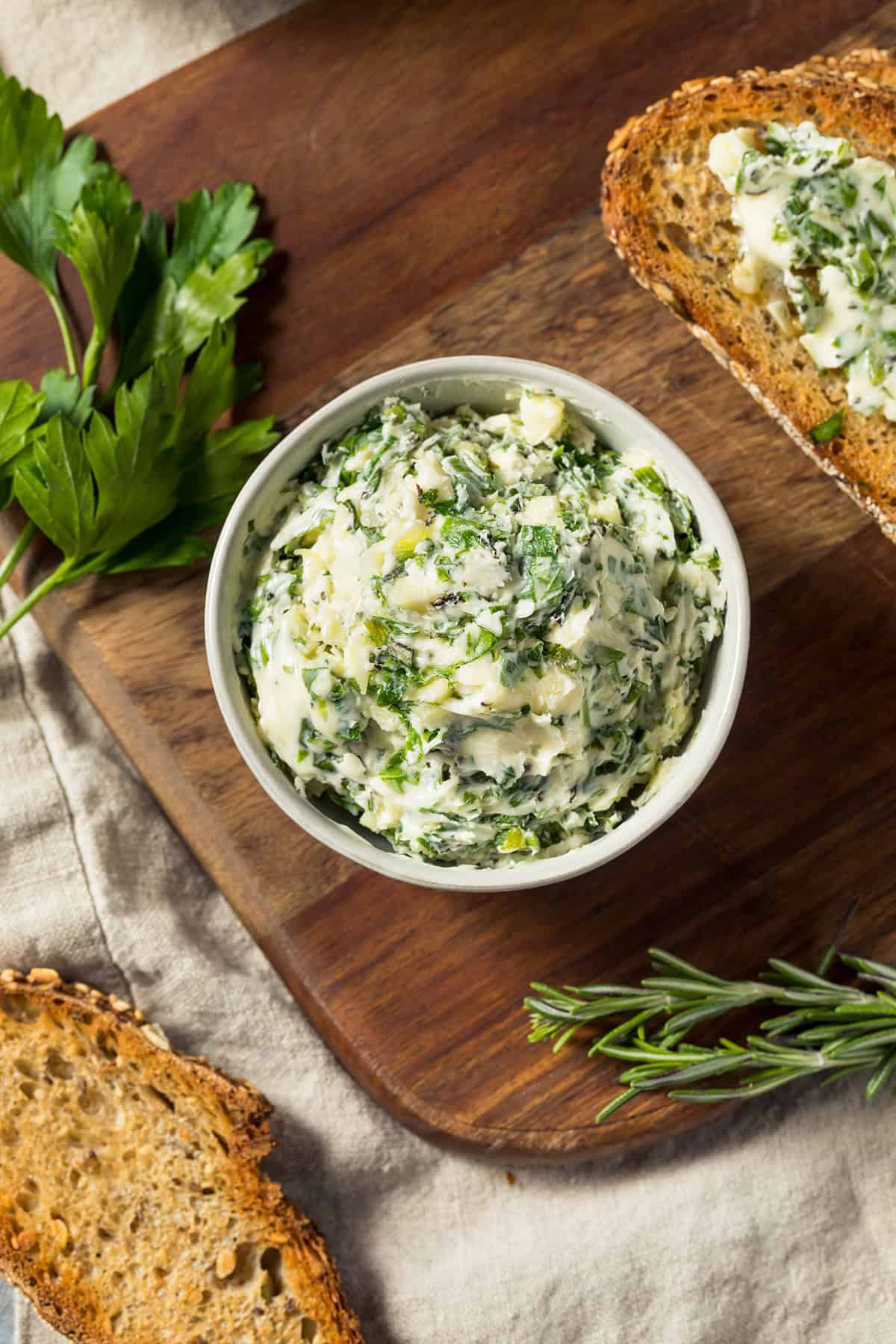
Herb butter is perfect for spreading on bread or adding to dishes. To make rosemary-infused butter, soften a stick of unsalted butter and mix in finely chopped fresh rosemary, minced garlic, and a pinch of sea salt. Shape it into a log using plastic wrap and refrigerate until firm.
Brewing Rosemary Tea
Rosemary tea can be soothing and aromatic. To make it, place a fresh rosemary sprig in a cup and pour boiling water over it. Let it steep for 5-10 minutes. Remove the sprig before drinking. You can add lemon or honey to enhance the flavor. This tea is known for its potential digestive benefits.
Crafting Rosemary-Infused Cocktails
A little muddled rosemary adds a surprising note to gin or vodka drinks. Shake it with citrus or berries, strain, and finish with soda water. The herbal undertone makes the cocktail taste more complex without extra effort.
Using Rosemary in Marinades
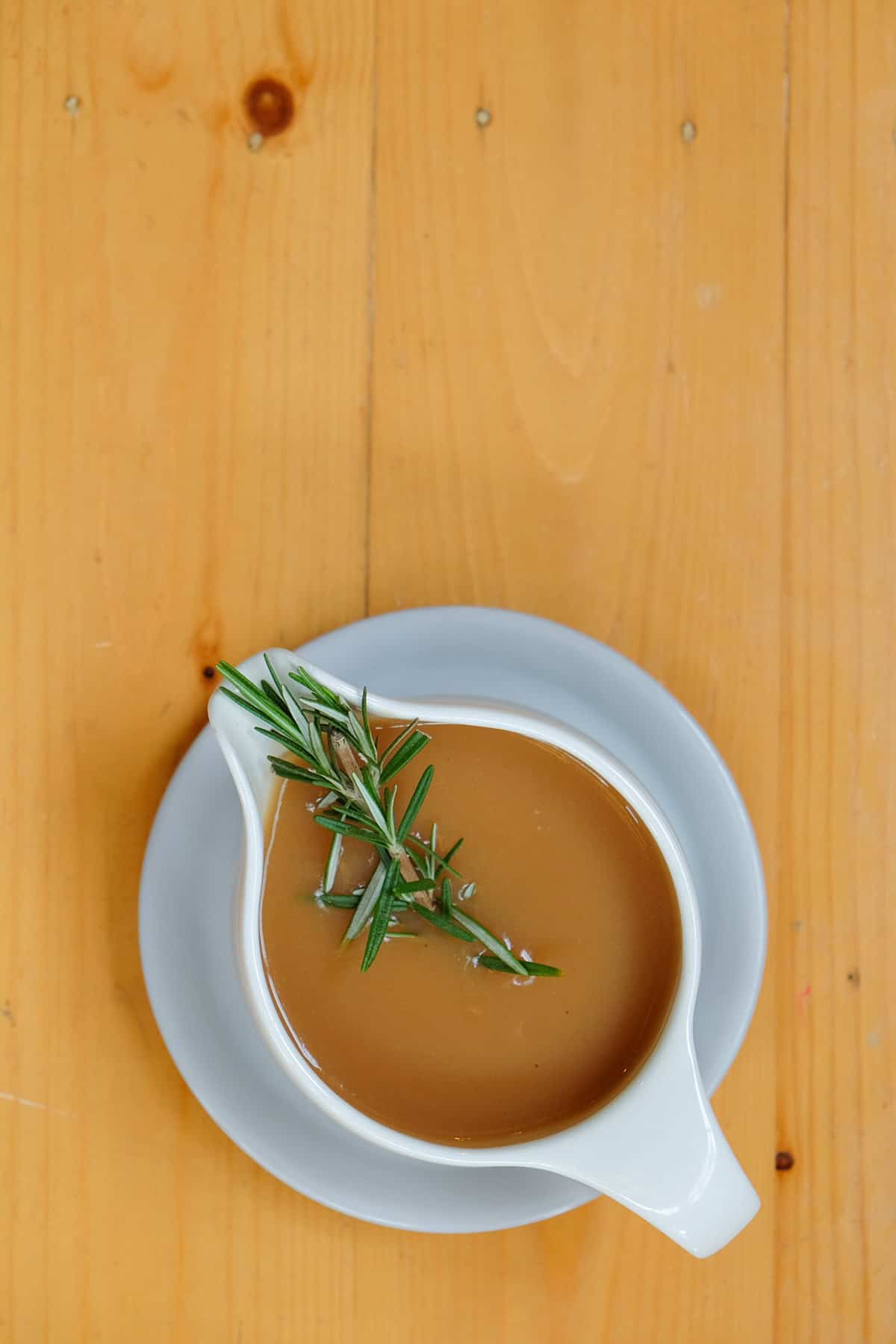
A quick blend of rosemary, olive oil, garlic, and lemon creates a marinade that works wonders on both meats and vegetables. Give the food time to absorb — at least an hour. The flavor penetrates deeply and brings a hint of smokiness once cooked.
Making Rosemary-Infused Honey
Sweet meets savory in this easy infusion. Drop a sprig into a jar of honey and let it rest for a week. It’s incredible drizzled over goat cheese, warm biscuits, or fresh fruit.
Creating Rosemary Essential Oil
Homemade essential oil starts with fresh sprigs and a carrier like almond or jojoba. Warm gently, let it steep for a couple of weeks, then strain. The oil works in diffusers, massages, or natural skincare recipes.
Using Rosemary in Aromatherapy
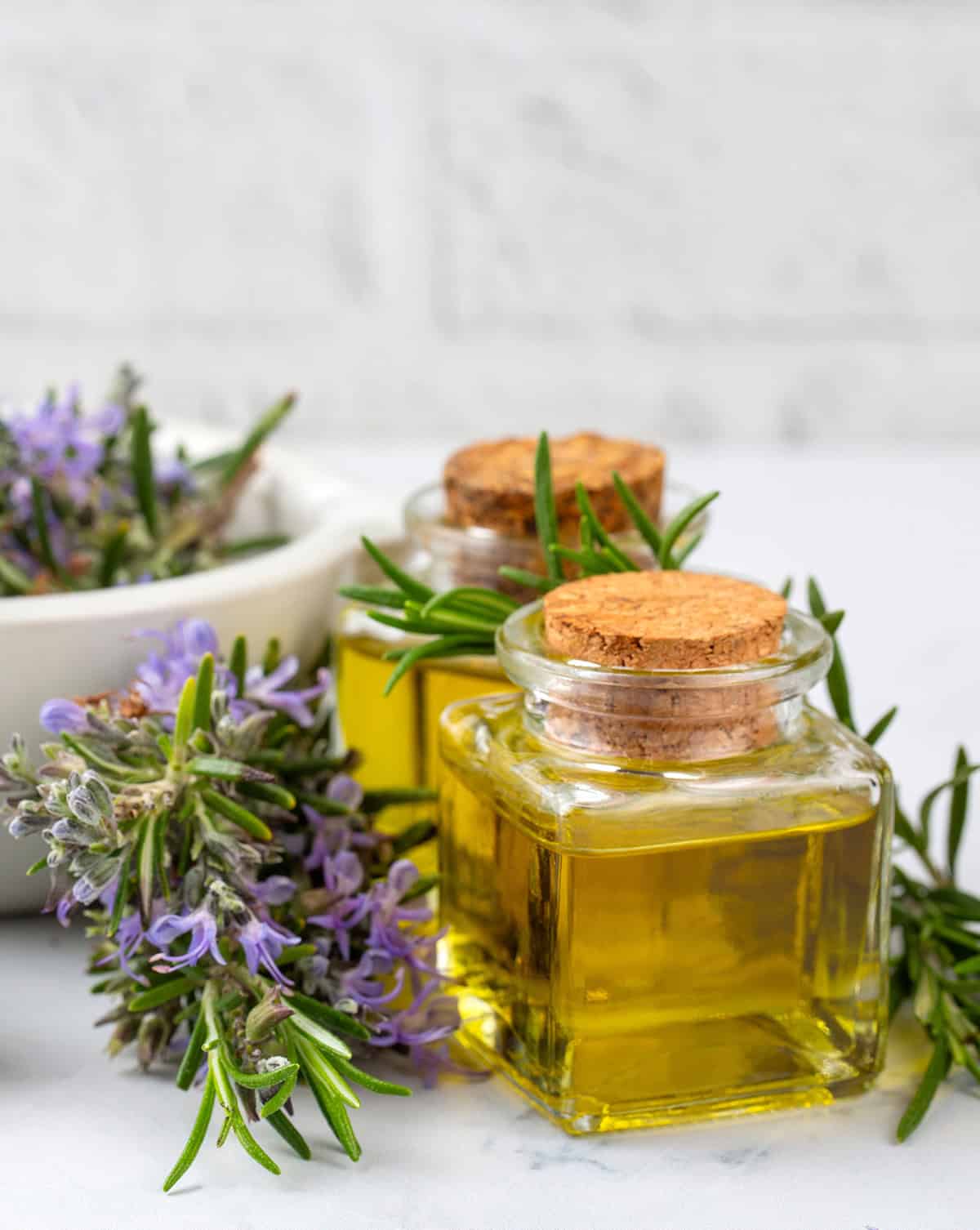
For sharper focus or a lifted mood, diffuse a few drops of rosemary essential oil. Some people add it to bathwater or mix it with a carrier oil for massage. The scent clears the mind and refreshes the space around you.
Making Rosemary-Scented Candles
Rosemary-scented candles can fill your home with a pleasant aroma. Melt soy wax and add a few drops of rosemary essential oil. Place a wick in a heat-proof container and pour in the wax. Let it cool and solidify. Light the candle to enjoy the fragrance.
Crafting Rosemary Potpourri
Dry sprigs mix well with lavender, rose petals, or citrus peel to make a natural potpourri. Place the blend in bowls or sachets around your home. The fragrance is subtle but steady, perfect for closets or nightstands.
Using Rosemary in Skincare Products
Its antioxidants make rosemary a valuable addition to lotions and toners. Infuse it into water for a refreshing facial spray or add a few drops of essential oil to creams. The herb helps refresh tired skin naturally.
Making a Rosemary Hair Rinse
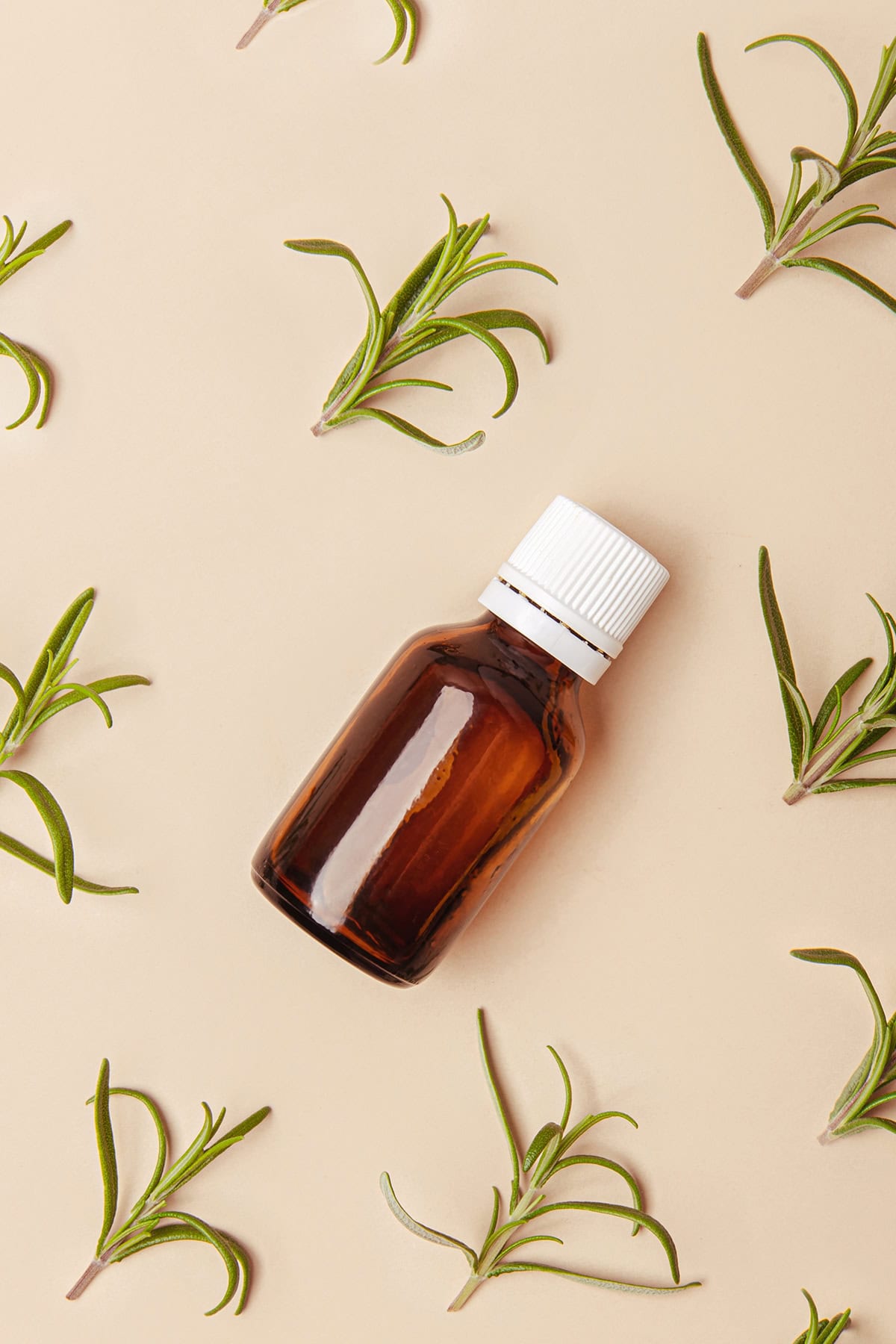
For shiny hair and a healthier scalp, steep rosemary in hot water, let it cool, and use it after shampooing. Pour it over slowly, leave it a few minutes, then rinse. Many swear it reduces dandruff and boosts shine.
Creating Homemade Rosemary Cleaning Products
Herbal cleaning solutions smell as good as they work. Steep rosemary in vinegar for a couple of weeks, strain, and mix with water. The result is a natural cleaner that’s tough on grease and gentle on surfaces.
Using Rosemary in Homemade Sachets
Dried rosemary tucked into small cloth bags keeps drawers, closets, and linen chests fresh. They’re easy to sew or buy, and the herb helps repel moths while adding a pleasant scent. Slip one under a pillow for a light, herbal aroma at night.
